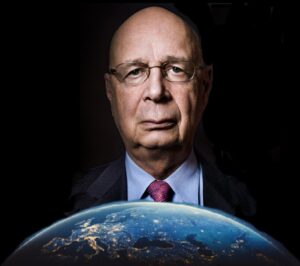The World Economic Forum: A Turning Point for Klaus Schwab and Global Governance

The World Economic Forum (WEF), known for its influential role in shaping global economic policies, finds itself in turmoil as founder Klaus Schwab faces allegations of financial and ethical misconduct. Speculations suggest that this could be a well-orchestrated internal coup designed not only to shift the organization’s agenda but to salvage its plummeting credibility.
A Whistleblower’s Claims Spark Controversy
Recent reports reveal that an anonymous whistleblower has raised concerns that Schwab and his family may have mismanaged the Forum’s resources. Allegations have emerged that Schwab asked junior employees to handle cash withdrawals and misuse organizational funds for personal benefits. Such claims, while serious, seem steeped in hearsay—a troubling factor that brings into question the credibility of these anonymous accusations.
The timing of this whistleblower’s letter is crucial. With former President Donald Trump’s victory reshaping the political landscape and emboldening conservative movements across Europe, including the surge of nationalistic parties, many speculate that the WEF is desperately trying to reframe its image. In this context, undermining Schwab could serve as a means to shift public perception from the controversial "you will own nothing and be happy" narrative to a more authoritarian, world-dominant stance.
The Role of USAID and the WEF
Contrary to popular belief, the collaborations between the WEF and USAID are not about direct financial transactions but rather project-focused partnerships. Both organizations have worked together on initiatives addressing climate change and economic resilience. Their relationship underscores a crucial trend in global governance—cooperation among multiple stakeholders to resolve pressing issues instead of relying solely on governmental funding.
While the skepticism surrounding this alliance persists, it’s vital to note that USAID’s connection to the WEF doesn’t necessarily imply direct funding. Most partnerships focus on shared goals rather than overarching financial commitments.
An Internal Coup or Credible Claims?
The abrupt investigation into Schwab’s conduct raises eyebrows. How can an institution built on years of collaboration and mutual respect suddenly pivot towards anonymous allegations? Many insiders, citing previous works and personal interactions, claim that these charges lack substance and credibility.
The philosophical underpinnings of the WEF were built on dialogue, cooperation, and transparency—principles seemingly abandoned in this sudden internal upheaval. For a leader who has led the organization for decades, the swift actions against him suggest a lack of due process that would be unthinkable in any legitimate system.
A Shift Away from WOKE Policies
In the backdrop of the WEF’s ongoing troubles lies a notable shift in political tides. The loss of credibility associated with the WOKE agenda manifests through rising opposition parties across Europe. The Alternative for Germany (AfD) and Nigel Farage’s Reform Party in Britain are gaining traction, indicating a backlash against the leftist policies that have long informed discussions at the WEF.
This atmosphere of dissent likely propels the ongoing struggle for the WEF to reclaim its narrative, potentially leading to attempts to eradicate its association with ‘extreme’ leftist policies.
The Future Direction of the WEF
As Klaus Schwab steps down amid crisis, the WEF will appoint interim leadership. Peter Brabeck-Letmathe’s historical ties to corporate interests raise concerns about the future direction of the organization. His past comments have already triggered fears of resource centralization as important issues surrounding digital ID systems and carbon credits come to the forefront.
While this internal strife unfolds, it remains essential for the world to monitor the developments at the WEF, as they could reshape the contours of international economic governance.
In Conclusion: Navigating Uncertainty
At Extreme Investor Network, we believe it’s crucial to sift through the noise and analyze the motivations behind these unprecedented events. Are the allegations against Klaus Schwab credible, or do they serve a greater agenda amidst a shifting political landscape?
This isn’t merely a story of a leader ousted from power; it’s a pivotal moment in global governance with the potential to influence economic policies worldwide. The fallout from this internal coup will inevitably impact countless stakeholders—making it all the more important for investors and policymakers to stay informed.
For more in-depth analysis and the latest updates on global economic trends, stay connected with us at Extreme Investor Network.

